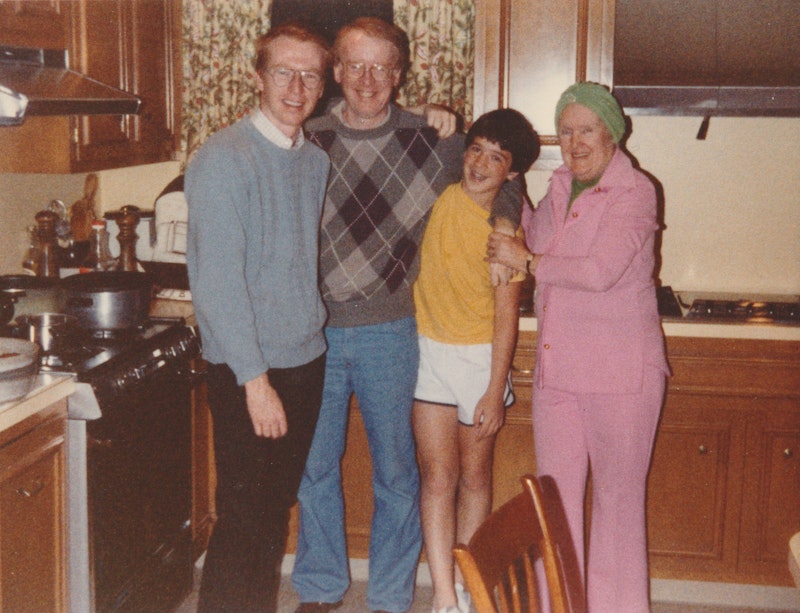Matthew Parris, a well-known UK journalist (and former MP) is more than a gadfly. The 74-year-old, born in South Africa, is a prolific author and TV presence, as well as pundit for The Times and The Spectator. He owns three homes, shared with his partner Julian Glover, and as a younger man was a successful marathon runner. I’ve read his articles over the years, and while I don’t agree often, I appreciate his delight in causing trouble and controversy among the more staid British establishment and reading public. Even in this era of almost no-reading, Parris can still cause a legitimate stir, as he did last week with a Times column saying that society must shed the “taboo” of assisted dying. (His peg for this particular column—he’s written favorably about euthanasia in the past—is the bill in the Scottish parliament to legalize assisted dying, one that’ll be debated in the fall.
Parris’ advocacy of assisted dying has gained traction among, I believe, a minority of citizens in the UK and United States. It’s a complex intellectual debate—and I say “debate” because it’s extremely unlikely than snuffing the lives of old and infirm people will become legal any time soon, certainly not in America, although Sweden’s a contender—and I’m on the opposite side of Parris, mostly because such a practice could, and probably would, be abused by relatives of the addled. It’s not the same as “putting down” an elderly pet that’s in pain or suffering from a disease.
Parris’ conclusion: “I suspect… that our culture is changing its mind about the worth of old age when coupled with crippling degeneration, incapacity, indignity and often suffering. If I’m right, our growing interest in assisted dying may reflect a largely unconscious realisation that we simply can’t afford extreme senescence or desperate infirmity for as many such individuals as our society is producing. ‘Your time is up’ will never be in order, but… may one day be the kind of unspoken hint that everybody understands. And that’s a good thing.”
What Parris doesn’t address is what might follow with this legalized practice: meaning, what about the 40-year-old riddled with cancer, say, who’s racking up enormous hospital bills, has no chance of recovery and is now bereft of dignity? That person, advocates like Parris won’t say out loud, but think, are also a burden to families and the government. Or, even more extreme: how would Parris and his confederates consider the fate of a six-year-old, “a little angel” who has a disease that’ll be fatal before he or she reaches the age of 10? The elderly prove a softer target for euthanasia enthusiasts, but the younger “burdens” are as yet untouchable only because it would shut down the “conversation.”
The following personal observations are anecdotal, but really universal since every family, at one time or another, is consumed by caring for sick and often terminal relatives. The accompanying picture shows my mom on the right—flanked by two of her five sons and a grandson—at her New Jersey home. This must’ve been a “good day” in between chemotherapy treatments for the brain cancer that would kill her just seven months later. As the disease progressed, she was in a hospital—in pain and hallucinating (she told me on one visit, that from that point on, she’d speak only in Spanish)—before she was moved to a hospice. Very near the end, she mistook my brother Gary and me for her two brothers and spoke haltingly about the past. She died three days later at the age of 65.
My family never considered—and to be fair, euthanasia was, except for radical provocateurs, a sci-fi concept then—that it would “a good thing” if she were put out of her misery. More recently, one of my brothers contracted an extremely rare disease, almost immediately diagnosed as fatal, and though it was tortuous to watch a once-vibrant, smart and witty man lose every shred of dignity, everyone in our family, especially my sister-in-law and two nieces, cherished every moment we had left with him before he slipped into a coma and died at 66.
I have close friends who’ve seen their parents lapse into dementia, and though it was expensive, they never would’ve considered “pulling the plug.” As so many know and have witnessed, dementia, ALS and Parkinson’s are unimaginably cruel, but in my experience (and I know that some ill men and women have family members slip them a “cocktail” of pills to end their suffering), no one I know has tried to convince their sick parents that their “time is up.” Maybe there’s a “generational” divide on the issue, although Parris, at 74, actuarily isn’t so far away from whatever ailment or accident takes his life. I wonder if he’s left instructions that in the case of a long decline he be “put down.”
Take a look at the clues to figure out what year the photo was taken: W. P. Kinsella’s Shoeless Joe and Chris Mullin’s A Very British Coup are published; Bernard Hinault wins the Tour de France; Alex Higgins wins the World Snooker Championship; Poltergeist is released; the DeLorean Motor Company ceases production; Seattle is officially nicknamed “The Emerald City”; Mayor Pete is born and Leon Jaworski dies; Aaron Klug wins the Chemistry Nobel Prize; Squeeze’s last performance is at the Jamaica World Music Festival; the Cure’s Pornography is released; Anne Hathaway is born and Rainer Werner Fassbinder dies; and Michael Fagan breaks into Buckingham Palace.
—Follow Russ Smith on Twitter: @MUGGER2023

